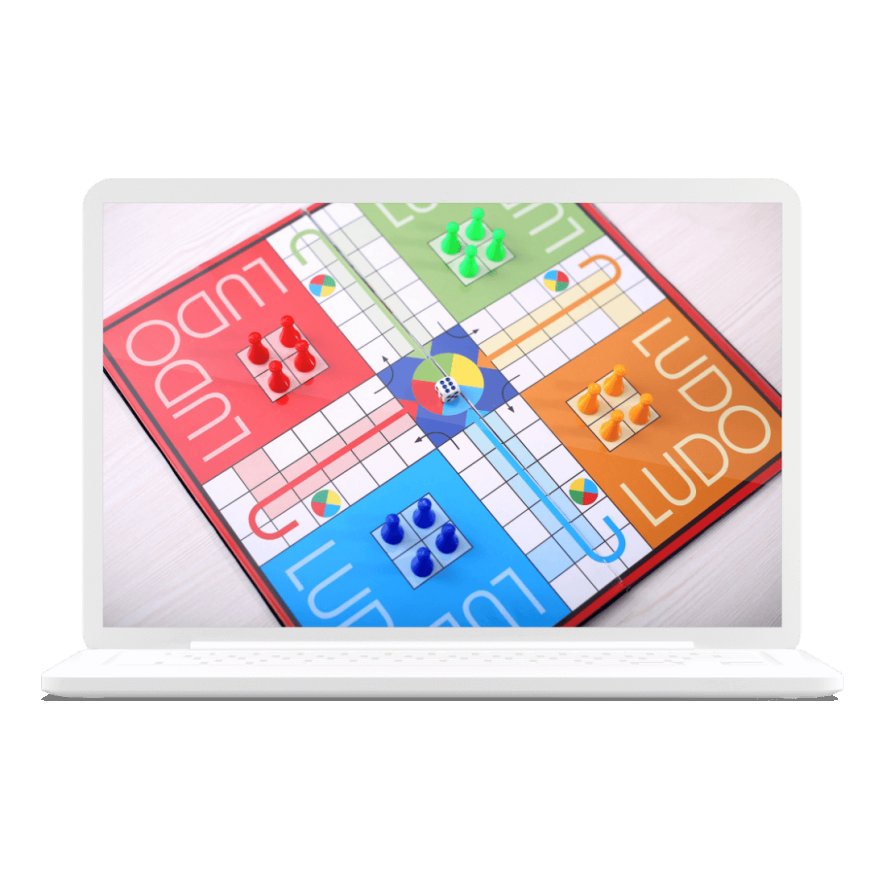Challenges and Solutions in Developing Multiplayer Ludo and Rummy Games
Tackle challenges with the right solutions to develop seamless, enjoyable, and secure multiplayer Ludo and Rummy games that captivate and retain players.

The development of multiplayer games has become increasingly popular, with Ludo and Rummy leading the charge in the mobile gaming world. Both games offer a blend of strategy, social interaction, and entertainment, making them favourites among casual and competitive players alike. However, developing multiplayer versions of these games is not without its challenges. In this blog, we’ll explore the common challenges faced by developers during Ludo game development and Rummy game development, along with practical solutions to overcome them.
Challenges in Developing Multiplayer Ludo and Rummy Games
1. Real-Time Synchronization
Challenge: One of the most crucial aspects of multiplayer games is ensuring that all players’ actions are synchronized in real-time. In games like Ludo and Rummy, any delay or lag in displaying moves or cards can ruin the experience and lead to player frustration.
Solution: Implementing an efficient server infrastructure is essential to avoid lag or delays. Using cloud servers with real-time data processing and WebSocket protocols can ensure that the game remains synchronized for all players. Optimizing the game’s backend to handle multiple connections without compromising speed is also a key strategy.
2. Cheating and Fair Play
Challenge: In multiplayer games, maintaining a fair playing field is critical. Cheating can occur when players exploit vulnerabilities in the game’s code or use third-party tools to manipulate results. This is especially common in competitive games like Rummy.
Solution: Developers can implement anti-cheating mechanisms such as random number generators (RNGs) for Ludo dice rolls and secure shuffling algorithms for Rummy cards. Additionally, implementing encrypted data transmission and regular security updates will prevent hackers from exploiting loopholes. By working with experienced Rummy game developers, companies can ensure that the game’s security is airtight.
3. Matchmaking and Balancing
Challenge: Ensuring players are matched with others of similar skill levels is critical to creating a positive user experience. Poor matchmaking can lead to frustration, as novice players might find themselves repeatedly losing to experienced opponents.
Solution: To address this, developers can implement a skill-based matchmaking algorithm. For Ludo, this could involve creating a ranking system based on players' past performances. In Rummy, incorporating player statistics such as win rate and average points per game into the matchmaking algorithm will ensure a fair distribution of skill levels. A Ludo Game Development company with experience in multiplayer mechanics can easily integrate these features.
4. User Engagement and Retention
Challenge: In a highly competitive market, keeping players engaged and retaining them over the long term is a significant challenge. Players may lose interest if there are no ongoing challenges, rewards, or new features to explore.
Solution: Developers can integrate engaging features like daily rewards, tournaments, and leaderboards to keep players coming back. In Ludo, offering team-based gameplay or customizable boards can enhance the experience. In Rummy, introducing different formats like Points Rummy, Pool Rummy, and Deal Rummy keeps the game fresh and exciting. Regular updates, new game modes, and promotional events are essential to keeping both Ludo and Rummy games attractive to players.
5. Cross-Platform Compatibility
Challenge: With players accessing games from different devices—smartphones, tablets, and PCs—ensuring that the game functions smoothly across multiple platforms is another hurdle.
Solution: To address cross-platform compatibility, developers should build games using robust and flexible frameworks such as Unity or Unreal Engine, which allow for seamless integration across Android, iOS, and web platforms. Utilizing cloud-based gaming servers ensures that gameplay remains consistent regardless of the device being used. For smooth multiplayer experiences, Ludo game development companies often focus on optimizing performance across various platforms during the development phase.
6. Monetization Challenges
Challenge: Creating a profitable business model without negatively affecting the user experience is a challenge. While in-app purchases and ads are popular monetization methods, poorly implemented strategies can lead to user dissatisfaction and drop-offs.
Solution: In both Ludo and Rummy game development, it’s essential to strike a balance between monetization and user experience. In-app purchases such as premium features, skins, or boosters should be optional and not disrupt gameplay. Ads can be strategically placed between game sessions rather than during gameplay to avoid intrusiveness. Subscription models offering an ad-free experience and exclusive rewards can also be a viable solution for monetization without alienating players.
7. Handling High Traffic During Peak Times
Challenge: Multiplayer games often face high traffic during peak hours, especially when tournaments or special events are being held. This can lead to server overloads, resulting in slow performance, game crashes, or downtime.
Solution: To handle high traffic, Rummy game developers and Ludo game development companies often use scalable cloud-based server solutions that can automatically adjust to handle a large number of simultaneous connections. Load balancing and optimizing the game’s code to minimize latency during peak hours are other effective strategies. Additionally, keeping the game’s infrastructure updated and maintained regularly ensures smoother performance even under heavy loads.
Conclusion: Partner with the Right Game Development Company
Developing multiplayer Ludo and Rummy games comes with its set of challenges, but with the right strategies and technology, these challenges can be effectively mitigated. By addressing issues such as real-time synchronization, security, matchmaking, and user engagement, game developers can ensure their multiplayer games provide an enjoyable and seamless experience.
Partnering with a professional Ludo Game Development company or Rummy Game Developers can help you overcome these challenges and bring a high-quality, engaging multiplayer game to market. Whether you're creating a casual game like Ludo or a competitive game like Rummy, having experienced developers by your side ensures your app will not only stand out but also succeed in the competitive gaming landscape.
Ready to bring your multiplayer Ludo or Rummy game idea to life? Work with experts to create a game that combines exciting features, smooth performance, and top-notch security to captivate players and keep them coming back for more!
What's Your Reaction?




















